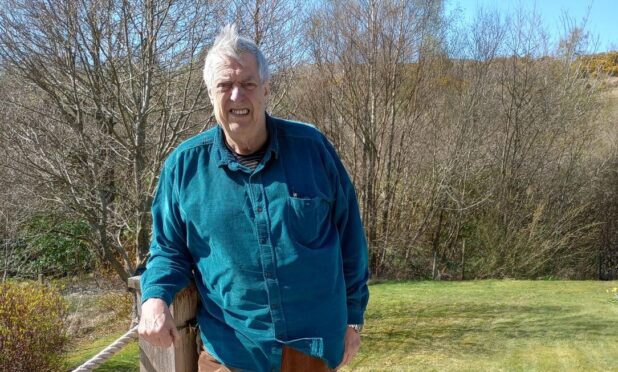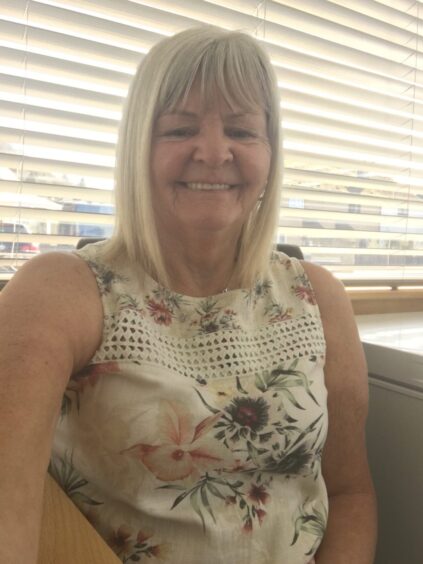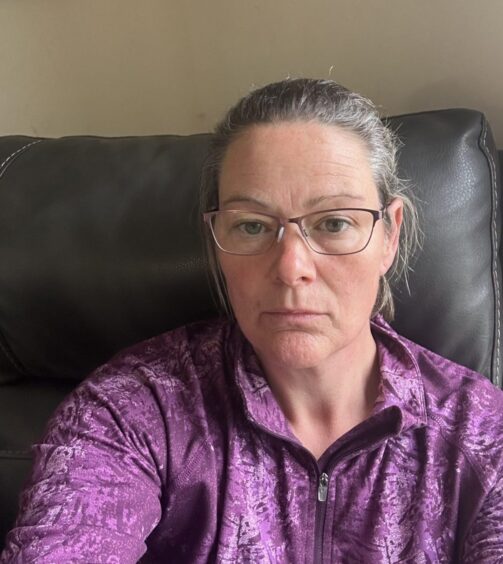Marion McKelvie has a simple question for NHS Highland: “What happens next?”
The 69-year-old from Inverness, who has Type 1 diabetes, has been under the care of Raigmore vascular surgeon Bernhard Wolf for the past eight years — ever since she developed hardening of the arteries in her left leg.
Mr Wolf, she says, was a brilliant surgeon who successfully treated the issue. So when the arteries in her right leg also began to harden, raising the possibility of an amputation, Marion was sure he would be there for her again.
But then she heard Mr Wolf was resigning from Raigmore — reportedly over concerns about patient safety at the Inverness hospital.
She no longer knew what – or who – to rely on.
Vascular surgeon departure highlights gaps
Mr Wolf was the only full-time vascular surgeon at Raigmore — and news of his departure last month has highlighted cracks in a service already stretched to breaking point.
With no full-time permanent replacement in place and major procedures now being referred to hospitals in the central belt — a three-hour journey from Inverness and far longer from towns such as Wick or Ullapool — the future for many is suddenly uncertain.
“I’m actually tearing up at the moment talking about it, because it frightens me that much,” Ms McKelvie said. “Who are we going to get? This person is not going to know me.”
More than anything, she fears being passed from doctor to doctor — some of whom may be hundreds of miles away, or potentially not as attentive and reassuring as she found Mr Wolf to be.
“Any time I had a problem, I’d just phone and he’d get me in. He always said, ‘If you get any trouble, just call me and we’ll go further.’ Now I’d have to go through all the rigmarole again.”
She found out about Mr Wolf’s resignation online — no one from NHS Highland contacted her.
“I’m just… I just don’t know what to do,” she said. “Am I just left for this to go up my body? That’s what’s happening with my arteries — the hardening is just going up my body. And who knows what happens then?”
The Tomich man living with a ticking timebomb
For patients like Marion, the future is frighteningly vague. For others, like Matthieu Oosterwijk from Tomich, it’s not just uncertain — it’s urgent.
Former merchant seaman Mr Oosterwijk, 73, has an abdominal aortic aneurysm — a dangerous swelling of the main artery that, if it bursts, can kill within minutes.
For years, his condition was monitored by Mr Wolf, who told him that once it reached six centimetres, surgery would be needed.
When it hit that point, around Christmas last year, Mr Oosterwijk expected to go under the knife — but instead, Mr Wolf gave him some unexpected news.
“He said, ‘We’ll have to start doing something, but we have a problem here in the hospital. There’s a very good chance that I will not be able to do the operation.’”
Why did Raigmore vascular surgeon leave?
Mr Oosterwijk suspects Mr Wolf already knew he was preparing to resign.
“He said the situation in the vascular department was not up to what he thought it should be,” he said.
Instead, Mr Wolf referred him to a surgeon in Aberdeen — more than three hours from Mr Oosterwijk’s home in Tomich.
“I was pissed off,” he said. “But Wolf said, ‘I trust this man.’ So I said, ‘If you trust him, I’ll trust him too.’”
Since then, the wait has dragged on. Tests Mr Wolf ordered for Mr Oosterwijk to clear a path for surgery were held up until the patient contacted his MSP, Kate Forbes. Those tests have now been carried out.
Still, he feels stuck in limbo, waiting to hear when his surgery will begin.
“I just want to get it done,” he said. “I don’t want to sit and wait until someone says, ‘Oh yeah, we still have him — let’s take care of him now.’”
He added: “It’s not that I’m afraid of dying — we all have to die — but it’s starting to work on my nerves.”
‘The system needs investment’
Not every family is entirely supportive of Mr Wolf. Lynda Dalgetty, whose father Roy MacCulloch was eventually treated by the surgeon, said she had to fight to get her dad readmitted to hospital.
But even Lynda lays the blame at the feet of the wider system — a system she says is stretched to the point of collapse.
“It’s a broken system, and money needs to be invested into it,” she said. “When it’s getting such a bad rep, how are they going to recruit the staff they need to fix it?”
Concerns over safety and staffing have long shadowed the field of vascular medicine.
The discipline, which covers conditions affecting the circulatory system, has a 36% estimated shortfall in surgeons, according to a 2021 report from the Vascular Society, the UK body that represents vascular surgeons.
The issue is all the more pressing as, according to the Vascular Society, a single surgeon at a health board is not sufficient to cover the wide range of complex treatments.
A 2014 report from the Vascular Society noted that “many major arterial procedures often require a three-person operating team due to the complexity of the operations”.#
NHS Highland response
NHS Highland confirmed that Mr Wolf has resigned from the health board but a spokesman said he continues to work within the service alongside a locum consultant.
The health board did not confirm exactly when Mr Wolf will actually stop working for it.
A spokesman said: “Vascular pathways particularly for access to arterial operating in NHS Highland are being reshaped.
“There are recommendations from the Vascular Society regarding how vascular services should be delivered and we are engaging with the Scottish Government in terms of moving towards meeting national recommendations.
“A vascular centre should serve a population of over 800,000 people. Raigmore Hospital serves a population of 250,000 and must provide services in a spoke and hub model, linked to a bigger centre.”
The health board said it is currently “delivering access to services in collaboration with a number of health boards across Scotland”, and said this is “because of a national shortage of specialist clinicians and best practice recommendation for patients to attend dedicated, expert centres for some treatments.”
The spokesman continued: “We are grateful to toher boards for their support for those patients who require the most specialist attention.”
“We recognise that patients will feel anxious about the change and we are sorry about that,” the spokesman added. “It is not ideal for patients to travel for their treatment and we apologise for any inconvenience this may cause.
“The majority of patients will be seen and cared for locally in Highland.”
The spokesman added that patients requiring more complex vascular surgery are now being treated through collaborative arrangements with other health boards, and that transport and accommodation costs are reimbursed.




Conversation